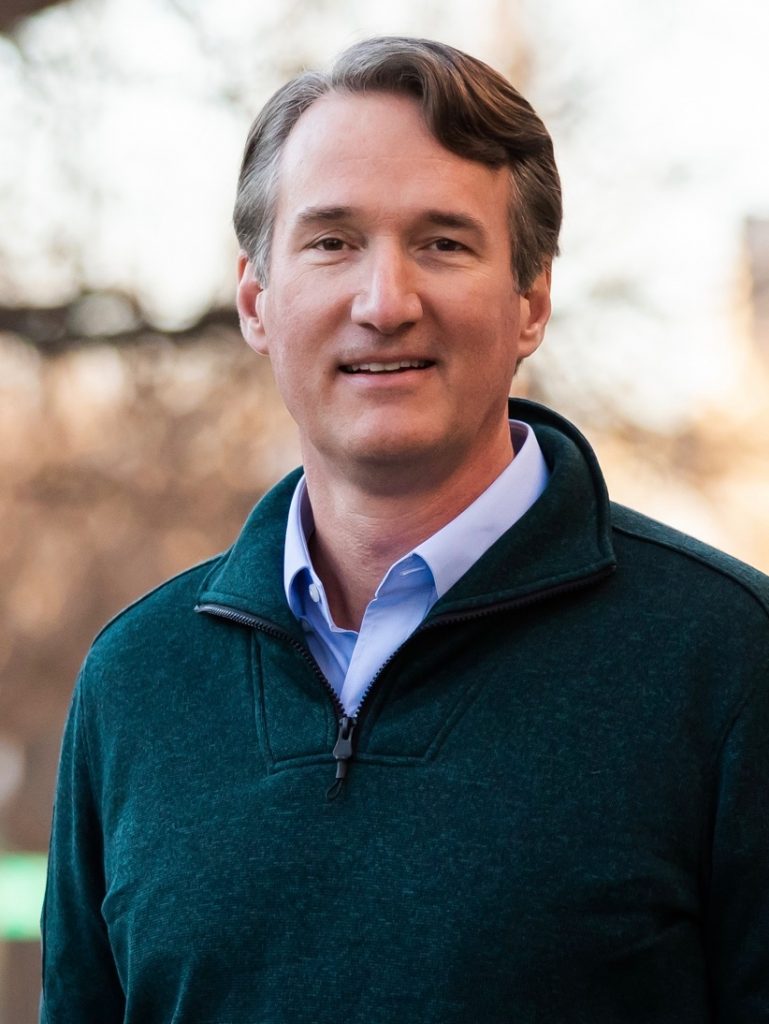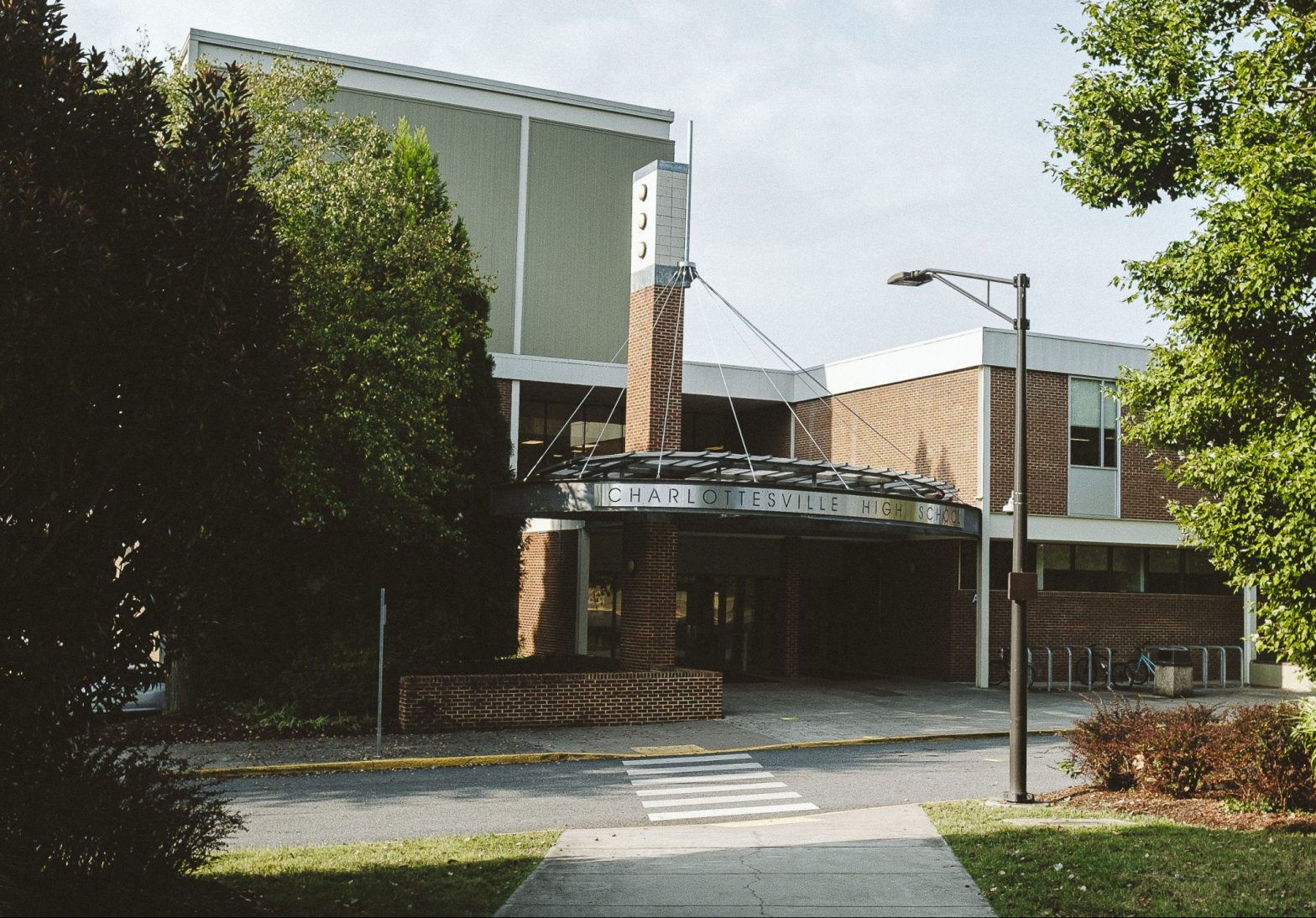When Sarah first heard about Governor Glenn Youngkin’s proposed transgender student policy, she sat down at her desk and cried. Her 10-year-old transgender child, who attends Charlottesville City Schools, was now in danger of losing critical protections and facing discrimination at school.
“I realized that things are about to get really tough,” says Sarah, who asked that we not use her real name. “It blows my mind that the intention of the Youngkin administration is to harm kids, [and] have families like mine experience this stress—it’s scary.”
Posted online on September 16, the controversial policy would force transgender students to participate in school programing and use facilities, like bathrooms and locker rooms, based on the sex they were assigned at birth. School staff would also be prohibited from concealing information about a student’s gender from their parents, and from referring to transgender students by their preferred name and pronouns—unless a parent submits legal documentation of their gender identity, and requests in writing that their child’s name and gender be changed on official school records. Even with parental permission, staff would not be required to use a student’s name and pronouns if it goes against their personal or religious beliefs, says the policy, citing constitutional free speech rights.
The policy is subject to a 30-day public comment period, which began on September 26, after which Superintendent of Public Instruction Jillian Balow will decide whether or not to approve the policy. If it is adopted, Virginia’s 133 school districts must implement transgender student policies that are “consistent with” the governor’s guidance—a major rollback of protections that has sparked fear and outrage among transgender students, parents of transgender children, and LGBTQ+ activists and supporters across the state.
Under these new rules, Charlottesville and Albemarle County schools would be forced to change their current policies, adapted this year and last year, respectively, which allow transgender students to participate in activities and use facilities that align with their asserted gender identity, and requires staff to address all students by their preferred name and pronouns—no parental permission required. Staff must address a student’s transition with their family, but also prioritize the wellness and safety of students who may face punishment if their families find out about their gender identity.
These policies are in line with model guidance issued by then-governor Ralph Northam in 2020—however, 90 percent of state schools ignored or rejected Northam’s orders, since the law did not include an enforcement mechanism, according to Equality Virginia.
Both governors’ policies do not address sports, which are subject to Virginia High School League’s rules. The league currently permits transgender students to play on sports teams aligned with their gender identity only if they have undergone sex reassignment surgery or been administered hormonal therapy “for a sufficient length of time,” per its website.
In response to Youngkin’s proposed policy, both school districts reiterated their commitment to creating safe and supportive environments, free from discrimination and harassment for all students. Still, Sarah fears the range of negative consequences the policy could have on the safety and well-being of her child, as well as of other transgender students across Virginia.

“If a teacher honors my child’s name and pronouns, is that teacher now at risk for legal action … [and] who’s going to enforce that?” she asks. “What happens when a teacher decides not to honor the name or the pronouns, or another student teases or harasses my child—are there still protections? Does anyone care if my kid is feeling safe?”
The policy is rife with barriers for transgender students—some are not supported by their families, or do not want to come out to the them out of fear of punishment, preventing them from receiving parental permission. School staff may be required to out students to their families and others, and may choose to not support transgender students at all. Even transgender students who are supported by their families may not have legal documentation supporting their gender identity.
“Parents of young children are not going to have taken any legal steps probably,” says Sarah.
LGBTQ+ activists stress the detrimental impacts that not affirming and supporting a child’s gender identity can have on their mental health. According to The Trevor Project, transgender children are more than two times more likely to have depression and attempt suicide compared to their peers.
“Using someone’s name and pronouns greatly reduces emotional distress,” explains Mary Sullivan of UVA’s Teen & Young Adult Center. “For some young people, that’s all they really want in terms of a transition.”
“This [policy] could go as serious as a child taking their life,” says Charley Burton who serves on the Virginia LGBTQ+ Advisory Board and several other LGBTQ+ organizations. “You’re literally putting a child’s life in your hands and destroying it.”
Legal analyst Scott Goodman expects the policy to face numerous legal challenges, and have some aspects struck down in court. “Federal courts have upheld students’ rights to use the bathroom that aligns with whatever their gender identity is,” he says, but there may be legal ground for the parental consent requirement regarding names and pronouns. LGBTQ+ activists also accuse the policy of violating the Virginia Human Rights Act, which bans discrimination in schools based on gender identity.
If Youngkin’s policy is successfully implemented, Sarah hopes CCS will do “the things they need to do to help kids feel safe so they can focus,” she says. “If that means using a preferred name, then we use the preferred name.”
“What we would hope to see is that there are teachers, school boards, and administrators who step up and say, ‘This may be a policy from the governor,” adds Nick Morrow of the Charlottesville Pride Network, “but we can create an inclusive environment at our school in a way that can hopefully mitigate some of the negative impacts.”
To comment on the governor’s proposed transgender student policy, visit https://townhall.virginia.gov/L/comments.cfm?GDocForumID=1953.
